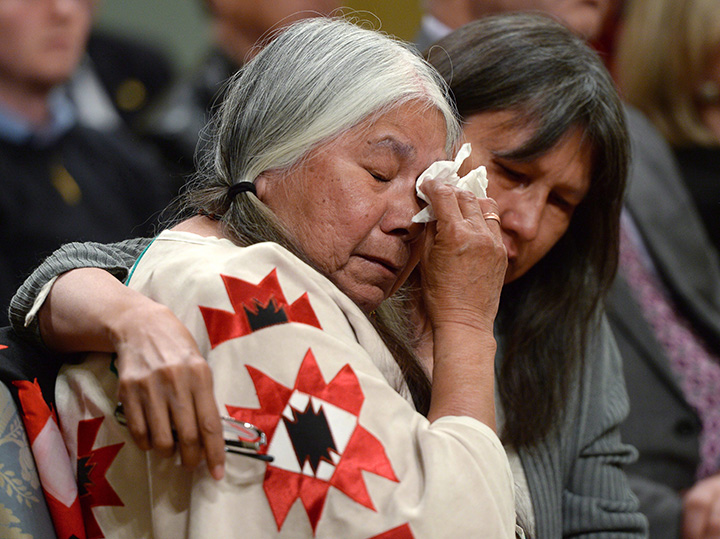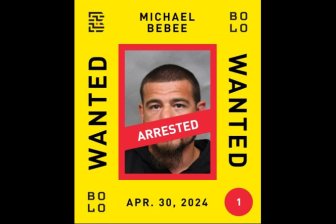ST. JOHN’S, N.L. – Former students of residential schools in Newfoundland and Labrador wept in court Tuesday as lawyers outlined a $50-million compensation deal with the federal government.

The settlement, affecting about 800 class-action members alleging abuse along with cultural losses, was revealed Tuesday as lawyers for both sides were in provincial Supreme Court in St. John’s seeking approval to notify plaintiffs.
Plaintiffs’ lawyer Steven Cooper said former students alive as of Nov. 23, 2006, or their estates if they have died since would be eligible for payments.
Students who lived in school residences for less than five years are eligible for $15,000 in general compensation while those who lived there five years or more are eligible for $20,000.
Abuse compensation payments could be up to $200,000 each and will be based on sworn testimony.
READ MORE: Documents of residential school abuse can be destroyed, court rules
Several former students embraced the lawyers who have represented them as they entered court. As the proposal was detailed before the judge, the onetime students wept in the public gallery.
The lawyers will be back in court later this year to argue the merits of the proposed deal, before the judge rules on whether to approve it.
Cooper said the federal government would also pay an undetermined extra amount for healing and commemoration. An advisory committee including indigenous groups would meet later this year to craft a plan and budget.
Plaintiffs’ lawyer Kirk Baert says eligibility for general compensation payments will be based on a streamlined application process to verify residence at the schools.
Archival paperwork has often been scant or lost.
“The people’s word will be accepted unless there are reasonable grounds to not accept that word,” Baert told Judge Robert Stack.
General compensation payments are expected to use up about $12-million to $16-million.
Lawyers from three law firms who have worked on nine related applications over the last decade are asking for one-third of the $50 million.
READ MORE: Regina moves to adopt Truth and Reconciliation Commission recommendations
Former residential school students in the province were excluded from then-prime minister Stephen Harper’s apology in 2008. A related compensation deal paid more than $4 billion to those who attended what were known as Indian residential schools across the rest of Canada.
The previous Conservative government argued Ottawa was not responsible for running schools in North West River, Cartwright, Nain and Makkovik – all in Labrador – or in St. Anthony in northern Newfoundland.
The International Grenfell Association ran three of the schools, while the German-based Moravian Missionaries ran the other two.
Defence documents denied the Newfoundland and Labrador schools were “akin” to now-defunct institutions under the federal Indian Act that were the subject of the federal Indian Residential Schools Settlement Agreement.
READ MORE: What happened to Jim? Experiments on Canada’s indigenous populations
Lawyers for the plaintiffs countered that, after the province joined Confederation in 1949, Ottawa had the same legal duty to aboriginal students in the province as elsewhere in Canada.
There was a change in tone after the Liberals took power last fall. Lawyers for both sides began working in February to reach a settlement by the end of this month.
Cooper said an apology is just as important to his clients as compensation.
“We hope and expect that the federal government will do the right thing,” he said in an interview.



Comments